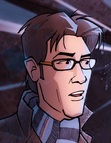Tim Flanagan's Blog, page 26
May 15, 2013
Author Interview – Karin Cox : Part 2
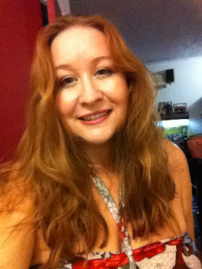 Within the Indie Author Hub, you can learn about other authors, their thoughts and opinions, what makes them tick and how their writing process works for them.
Within the Indie Author Hub, you can learn about other authors, their thoughts and opinions, what makes them tick and how their writing process works for them.
All this week I will be releasing segments of an interview I conducted with fellow author, Karin Cox, Australian author of Paranormal fiction. Have a look at her profile and books here.
Part 2 : Promotion and the Publishing Industry
What ways do you promote yourself online? I have a Facebook, Twitter, Pinterest and Goodreads account and I interact with a lot of other indie authors and forums, including author and reader boards. I blog (admittedly infrequently) and I try to share news about my writing process and interests on my Facebook author page. I also book paid advertising, do Select free runs and do giveaways. I spend at least two hours a day, I’d estimate. Some of that is creating visuals to post to Facebook and Pinterest, some is interacting on twitter or FB or scheduling in tweets and some is contacting reviewers, managing my page, and doing guest interviews or booking advertising.
How do you target your audience effectively? I think the cover, blurb and sample do a lot of that filtering for me, but aside from that, I advertise, I contact bloggers who have large followings of readers who enjoy paranormal romance and ask them to review. I am also embarking on the project of writing more about mythology, which is one of my passion, over on my author page. As always, it is finding the time to blog that is the problem.
What’s been your most effective way of promoting yourself? Bookbub has definitely been the most effective paid promotion (advertising) I have taken out, and KDP’s Select program has also been good to me. Aside from that, I think having a platform really helps. Running Indie Review Tracker, I have met a lot of authors who are willing to help me out and promote my work if they enjoy it, and that is a big help.
What’s your history in publishing? I was first published for creative non-fiction (biography) in 2004 with New Holland Publishing Australia, and I then went on to publish non-fiction, social history and children’s fiction for Steve Parish Publishing. I was also doing quite a bit of ghostwriting in creative nonfiction, helping authors who struggled to tell their life stories themselves get their books into print. When the digital book revolution started, I was finally finding time to write my own adult fiction seriously (I have a lot of half-finished manuscripts in a drawer!) as I was on maternity leave. I made the decision to self-publish for expedience and, initially, as an experiment into this new market and testing how well ebooks sold. That was in 2011, and I haven’t looked back. I still publish trade social history with New Holland Publishers, but I will likely continue to publish my fiction myself via KPD, Apple, Kobo and B&N. Having been on the other side of the desk, I know how long it takes to get a book into publication. I love the industry I work in, but I was baffled by the way publishers were refusing to embrace change and seize the opportunities presented by digital publishing, preferring to work with an out-dated distribution model that saw many thousands of returns or pulped books instead of print on demand or ebook only titles. When my employers didn’t offer the kind of training or experimentation into digitalised works that I wanted, I decided to explore it myself and to teach myself how to do create and market ebooks effectively, and I have.
What do you think the future of publishing will be? I think the future of publishing is already here. Ebooks and paperbacks, and even hardcovers, will exist side by side, but the paper copies will be more for hardcore fans. I do believe that ereader ownership and tablet ownership will continue to grow and that print books will price themselves out of the market.I don’t see big chain bookstores like B&N maintaining any kind of stranglehold on the print book market because I believe a sale or return distribution model is unsustainable. People are already ordering books online and will do so even more in the future. Traditional publishers need to stop treating authors like a side effect of the process and start to see that the author, not the publisher, is the brand. They need to shift their thinking so that they treat authors as assets not commodities to be exploited, produce ebooks first, and then go to a PoD print model for print books, and they need to understand that their primary value is in marketing and publicity or in print deals. If they’re not putting the dollars in there, then authors will walk away for better royalties and more editorial freedom elsewhere.
How do you deal with rejection? I diagnose wine and whine. Large quantities of both. And I swear at the screen. A friend of mine uses the curse “May you one day write a book of your own” when it comes to particularly nasty reviewers, so I like to borrow it from time to time.
What’s your top tip for aspiring authors? Just Sit Down And Write It!
Read about Karin’s inspiration and motivation.


May 13, 2013
Author Interview – Karin Cox : Part 1
 Within the Indie Author Hub, you can learn about other authors, their thoughts and opinions, what makes them tick and how their writing process works for them.
Within the Indie Author Hub, you can learn about other authors, their thoughts and opinions, what makes them tick and how their writing process works for them.
All this week I will be releasing segments of an interview I conducted with fellow author, Karin Cox, Australian author of Paranormal fiction. Have a look at her profile and books here.
Part 1 : Karin’s Writing Process
What inspired you to become an author? I’ve always had the gift of the gab, but I started out mostly writing poetry. My dad always wrote poetry. He is a farmer, a hard man and an unlikely candidate for lyricism. I loved that I saw his softer side in his poems. Writing was a way to release tension and to work through my own often tangled and extreme emotions. I am a Scorpio and I like exploring the darker side of human nature. I love philosophy and profound thought. I like to go deep, sometimes too deep. Writing seemed like a perfect fit for my nature. If I couldn’t be an author I would be an editor. I love editing too, but I just need to focus on my own work for a little while at the moment, before I am too old to live my own dreams while I’m helping others chase theirs.
How do you juggle writing with normal life? I usually get up, have breakfast with my two-year-old daughter, and then check my social media and do a little marketing while she plays for an hour or so. From then on, my hands are tied until she has a daytime nap at about 1.30 pm, so I go to the gym, play, swim or swing or do craft and then I research or edit in the hour or two while she is asleep. Once she goes to bed at 7.30, I edit or write from 8 until 1 am. Prior to my daughters birth, I wrote full time as the inhouse author for Steve Parish Publishing for four years. Having 8 hours or more a day to spend on writing alone would be a dream come true, but I wouldn’t trade my hours with my daughter, as she is the true masterpiece of my life. I don’t worry about burning out because I almost feel burned out all the time! Like a phoenix, I manage to haul out of bed and rise from the ashes. Sometimes you just have to “Make it happen!” and that is kind of my personal motto. To recharge, I like to take the occasional camping holiday with my family, watch a movie together, or go to the park or the beach. I have a pool, so occasionally I just go and float and zone out for fifteen minutes or so. Floating is a great way to discover clarity. Going to the gym for an hour a day also helps me to stay focussed and fit and I often read the work of other indie authors on my iPad while I’m on the treadmill. I think being a part of a tight-knit and extraordinarily helpful indie community is important. I believe we can all achieve our goals; we’re not in competition because each book and each reader is unique.
Where do you write? My study has been taken over by my partner as his X-box “man cave” so I now mostly write in a recliner in the living room or out on the deck at a big wooden table, overlooking the pool. It is getting too wintry here to do that now, so it’s the recliner for a few months. My special writing place is simply solitude. I can’t write with other people in the room or with the TV on. I need silence.
Do you plan your books down to the last detail? Good heavens no. Whenever I have tried to do that, I get crippling author paralysis. I prefer to plot very basically. I know how the book will begin, the climax, and the ending, and then I fill in the rest as I go along, adding theme and linking elements at editorial stage. I don’t fear the blank page. I fear the point about 40,000 words in where the ending seems too far away. When I get there I just keep going. The editor in me makes it very hard for me to just “bash out” a first draft. I like to polish as I go along but that can lead to dilemmas if my desire to make it perfect conflicts with my ability to get words on the page. A good tool for me has been a program called Write or Die. I put it on a setting called Kamikaze, which means it eats my words if I don’t keep up with the self-imposed word count, and I get my draft done that way in blocks of 2000 words or so. Then, when I start work the next day, I edit that first and then set myself another Kamikaze session.
How do you decide on your characters and what they will be like? I suppose I mentally “workshop” them for a while before I begin writing them. It helps to look at photographs of people and places, and to drill down to the core of why they act a certain way. What are their psychological hurts that make them who they are and how do they show those hurts or fears on the surface?
In Part 2, Karin reveals her thoughts on the publishing industry.


May 11, 2013
Lady Carden’s Grid
Whilst the men were out fighting battles, the ladies of the Round Table would spend their days completing tapestries and teaching the children. Another of their past-times was playing complex number games. Lady Carden, the beautiful daughter of a physician and wife to the brave Sir Bonfleur, was particularly good at puzzles. So clever was Lady Carden that she created her own puzzles which became renowned within Camelot as being the most fiendish and difficult to solve. Here is one of her number grids – the instructions are simple, but to complete the grid you need logic and thought. Good luck.
Don’t forget to check out some of the other Mind Games.


May 9, 2013
Author Interview – Denise Greenwood : Part 2
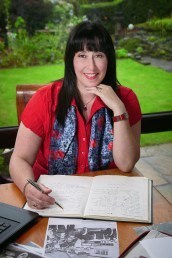 Within the Indie Author Hub, you can learn about other authors, their thoughts and opinions, what makes them tick and how their writing process works for them.
Within the Indie Author Hub, you can learn about other authors, their thoughts and opinions, what makes them tick and how their writing process works for them.
All this week I will be releasing segments of an interview I conducted with fellow author, Denise Greenwood, UK author of dark, psychological drama. Have a look at her profile and books here.
Part 2 : Denise’s thoughts on the publishing industry
What route did you take to publication? I started my rounds to publishers in May of 2012 and submitted to 9 publishers. I received 3 offers of publication by October and then I had to decide whether to go with a traditional publisher or an Ebook publisher. But, I had put in some considerable time attending writer workshops in London, speaking with agents, publishers and other writers so that I knew something about the industry and what I had to do. I was lucky enough to be offered a contract by Aventura eBooks who publish my books on the various sites
What do you think the future of publishing will be? There will always be paperbacks just as there will be CDs and DVDs for those people who feel more comfortable with them. However, the population is aging and the OAPs of tomorrow will have had the benefit being savvy in their PCs, Smart phones and iPads. Paper versus electronic shouldn’t be seen as a competition as they should both go hand in hand.
Is there a role for agents in the future? An agent has experience within the industry and most are swayed by their own personal preferences of how they want to work. The traditional publishing world very often only considers work via an agent and so to go it alone means that an author has to be prepared to work hard to be both writer and publicist.
How do promote yourself? I have my own blog with pages for my books and inspiration. I’m a member of Goodreads and Authors Den. I also have author pages on Amazon sites, Tweet and I post to my Facebook where I have two pages – my Author’s page plus my own friends and subscribers page where I post about once a week on a more personal basis. I like to communicate with interesting readers and answer their questions. I do, however, look at my social media every day to ensure that I don’t end up with a massive list of things to do each week. I’ve also been lucky enough to feature in local newspaper articles and I’m currently in the spring edition of Style magazine (Rochdale). All authors should be prepared to take on their own publicity leg work, even traditional publishing houses do not target the authors local media. Regular press releases and letters of introduction are a must.
How do you keep yourself motivated? By reliving experiences and living new ones through my writing. I can be anyone, go anywhere and do anything – who else can boast of that?
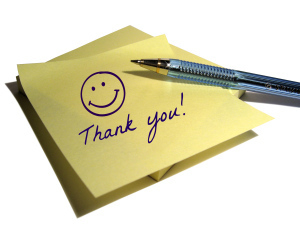 In seven words or less, what’s your top tip for aspiring authors? Decide WHO you are writing for. First I write for myself, but every writer has to ask themselves if what they like will travel to a readership? I thoroughly enjoy the writing process but I aim to write for a younger version of myself, if that makes sense?
In seven words or less, what’s your top tip for aspiring authors? Decide WHO you are writing for. First I write for myself, but every writer has to ask themselves if what they like will travel to a readership? I thoroughly enjoy the writing process but I aim to write for a younger version of myself, if that makes sense?
Read about Denise’s writing process in Part 1.


May 6, 2013
Retro Cover for Book 2
When I redid the first book cover in the Moon Stealer series, sales immediately picked up in Japan! So, to keep the theme going – here is Book 2′s new cover. Let me know what you think.


Author Interview – Denise Greenwood : Part 1
 Within the Indie Author Hub, you can learn about other authors, their thoughts and opinions, what makes them tick and how their writing process works for them.
Within the Indie Author Hub, you can learn about other authors, their thoughts and opinions, what makes them tick and how their writing process works for them.
All this week I will be releasing segments of an interview I conducted with fellow author, Denise Greenwood, UK author of dark, psychological drama. Have a look at her profile and books here.
Part 1 : Denise’s Writing Process
What inspired you to become an author? I was 7 when I first wanted to be an author and then, life got in the way and it wasn’t until 2009 that I began to think of the story of Temptation. At that time, my only question to myself was “am I able to do this?” and I sat down to write the first paragraphs and to my surprise I’d finished the first chapter and time had flown by. It was simple after that, I continued to work full time but gave myself the challenge to write my first book. As I came to its conclusion the outline of the second had already come to me. Temptation was inspired by the memories of the people I knew years ago during my jaunts through the world of comedy and religion plus the quaint scenery of where I live and how different it is to the world I once occupied. I’ve had various roles before I became an Author - I was a Policy Development Manager for 16 years, actively producing hundreds of training packages and manuals. Before that I worked in Public Relations in the GM Fire Service Publicity Dept and then went into admin and retail. If I couldn’t write fiction then I would love to be a film critic as my tastes are eclectic.
How do you fit writing into your daily routine? An early start at 6am to see to my family before they start their day then exercise before commencing my working schedule at 9am until 6pm. I have a strict schedule and keep to it being disciplined enough to follow it without qualm – after all I’m doing something I love. I write for 4/5 days and have 1 day for social media. Where I write depends on the weather. Sometimes I write in coffee houses or pubs where a conversation can prompt an idea that will evolve at a future date. Otherwise, I write in the local parks or at home in various rooms. I also love to write in my conservatory so that I can often gaze out across the South Pennines and moors.
Do you have a daily word target? I like to complete a chapter in a week, so my focus is more on producing quality rather than quantity during the week.
Do you plan your books down to the last detail? Mostly although it changes as I write and often, as soon as I switch-off from it, I’m overcome with a flash of inspiration and then have to return to it.
How do you decide on your characters and what they will be like? I think about them for a long time first, building them into people in my mind’s eye and getting to the core of what their motives are for acting the way they will do in my books. Then, I think of how they will interact within my story and I then complete a “Character Profile” and simply filling in a questionnaire about them adds depth and brings forth new ideas.
In Part 2, Denise reveals her thoughts the publishing industry.


May 2, 2013
Author Interview – Dan Harris : Part 3
 Within the Indie Author Hub, you can learn about other authors, their thoughts and opinions, what makes them tick and how their writing process works for them.
Within the Indie Author Hub, you can learn about other authors, their thoughts and opinions, what makes them tick and how their writing process works for them.
All this week I will be releasing segments of an interview I conducted with fellow author, Dan Harris, an inspirational Sci-Fi writer. Have a look at his profile and books here.
Part 3 : Promotion and Motivation
How do you promote yourself online? I started blogging midway through the first draft of Ascension Point, I’d read somewhere that ‘building a platform’ was important. I had no idea what that really meant, but apparently a blog was key. So I started posting random thoughts on writing, reading, sci-fi and fantasy on my site (http://dan-harris.net) and that’s turned into a primary promotional tool. I’ve got ~450 followers there, so quite a few people will see me post about a new release, or a great review, or an interview like this. I blog – and occasionally tweet – about things I’m interested in, which are often science stories on io9, short stories on Tor.com, or trailers for upcoming superhero movies.
What other promotion has worked for you? The most effective book promo I’ve done was when I managed to get on Ereader News Today’s Book of the Day program. I cut the price of Ascension Point from $4.99 to $2.99 for the promo, and sold about 120 copies in a few days, which was a few more than I’d sold in the five months it had been out prior to that!
How do you keep yourself motivated? I love writing, so it’s not usually that hard. When I’m tired or just plain can’t be bothered, I think about that 5-10 year goal, and get back to it.
 And finally…. your top tip for aspiring authors? I have to paraphrase Heinlein’s rules here. “Write. Finish. Submit or publish. Write more.”
And finally…. your top tip for aspiring authors? I have to paraphrase Heinlein’s rules here. “Write. Finish. Submit or publish. Write more.”
Read about Dan’s Writing Process and his Thoughts on Publishing


May 1, 2013
Author Interview – Dan Harris : Part 2
 Within the Indie Author Hub, you can learn about other authors, their thoughts and opinions, what makes them tick and how their writing process works for them.
Within the Indie Author Hub, you can learn about other authors, their thoughts and opinions, what makes them tick and how their writing process works for them.
All this week I will be releasing segments of an interview I conducted with fellow author, Dan Harris, an inspirational Sci-Fi writer. Have a look at his profile and books here.
Part 2 : The Publishing Process
How did you become published? KDP, Createspace for paperbacks, Kobo, and I use Draft2Digital to get into Barnes and Noble and iTunes. I was quite confident I could write novels that were worth reading, without needing an agent or a publisher to confirm that for me. So I chose the lottery of trying to be noticed and known among the massed ranks of other indie published authors over the lottery of finding an agent and publisher by the traditional route! It’s going pretty well so far, but it’s a long game; you can’t expect immediate success. My goal is that 5-10 years from now when I’ve got 10-20 books out, I’m making enough from writing to cut back my hours at the day job and write at least part-time. If I was making enough from writing to live on, that would be marvelous.
Do you think Indie Authors are looked down on by the traditionally published counterparts? Yes. And vice-versa, bizarrely. There’s a huge amount of pointless animosity with authors and publishers and ‘experts’ yelling at each other in the so called ‘indie vs. traditional’ debate. We don’t need a debate. Writers just need to realise that they have more options than at any time in the past, and they need to make an informed decision about what the right publishing path is for them. Indie publishing isn’t for everyone, there’s a lot of non-writing work to be done; those folks might want to stick with the tried and tested traditional method, but should understand the limits of that: small advances, limited promotional help, tiny royalties, and a very small chance of being published in the first place. If you have the confidence and a little bit of cash to back yourself as a writer, indie might be the best way to go. You do all the work, but you get all the rewards.
What is the future for publishers? A hybrid model where writers are flexible about how they publish their work. Where publishers pay reasonable royalties for digital sales, and outdated contracts with non-compete clauses and 70-year rights reversion are a thing of the past. But those publishers need to realise that writers don’t need them to be gatekeepers any more, they need them to be partners: providing a set of services – editing, cover design, marketing, distribution – that help a writer and a book succeed, in exchange for a reasonable share of the proceeds. And reasonable isn’t 52.5% of net ebook sales in perpetuity, when the writer can click a ‘Publish’ button just as easily themselves.
Do Authors need an Agent now? Not from the start, and possibly not at all. Agents can be useful for negotiating deals where the author has no expertise: print rights, film rights, translation rights for international sales. But a savvy and experienced entertainment lawyer with expertise in the publishing industry can handle such negotiations just as well, and for a flat fee rather than 15% off the top. Agents need to evolve and really show how they add value to the author’s team, instead of just being the first hurdle to clear on the way to finding a publisher.
Do you employ editors or cover designers? I employ an Editor, Misti Wolanski, who works for Red Adept Publishing (http://redadeptpublishing.com/pricing-menu/). They’re one of the most popular editing firms in the indie publishing, and had a lot of great references from other writers when I was searching for an editor. It’s essential if you want to put out a professional-quality book. It’s not small change, though; an experienced professional editor can cost anywhere from several hundred to a couple of thousand dollars (though in my experience if the price is above $1000 it’s because the editor is a ‘name’ who previously worked for the big six). I also get a lot of benefit from having a few friends and colleagues read an early draft before Misti sees it. This allows me to catch some of the stupid stuff – character niggles, little plot gaps – early on, so Misti can concentrate on polishing up a book that’s in decent shape, and making it really great. I found Stephanie Mooney (http://mooneydesigns.net/) via the Kindle boards Writers Cafe, and she’s done both of my covers so far. She’s very talented, and charges a reasonable rate : $100 for her standard service. I have zero artistic or design ability, so DIY just wasn’t an option!
Read about Dan’s Writing Process
Next – Find out how Dan promotes himself in Part 3


April 29, 2013
Author Interview – Dan Harris : Part 1
 Within the Indie Author Hub, you can learn about other authors, their thoughts and opinions, what makes them tick and how their writing process works for them.
Within the Indie Author Hub, you can learn about other authors, their thoughts and opinions, what makes them tick and how their writing process works for them.
All this week I will be releasing segments of an interview I conducted with fellow author, Dan Harris, an inspirational Sci-Fi writer. Have a look at his profile and books here.
Part 1 : Dan’s Writing Process
What inspired you to become an author? I’m honestly not sure. I’ve been devouring books since I was about four years old, and writing stories on and off since I was twelve. But it was another fifteen years before I said to myself ‘look, you’ve got no excuse for just talking about writing a novel, instead of actually writing one’. Which did the trick, as I sat myself down and, over the course of a year, banged out Ascension Point. If I wasn’t an author I would probably be a professional basketball player. I could have made it, if I were only five inches taller, much, much fitter, and at all talented.
How do you fit writing into your daily routine? Sadly, I don’t write full time. I’m a customer support manager for a software company that services the telecoms industry. I find an hour a day to write, wherever I can. In the morning before work, after work before my wife gets home, late at night before I go to bed. It’s not hard to find that hour, once you set your mind to it. Six hours sleep and ten hours of work leaves eight hours free, after all! I’m pretty consistent, writing an hour gets me somewhere between 750 and 1250 words. Averages out at about 1000 words / hour, which means I can bang out the first draft of an 80K novel in 80 hours, or 16 weeks at one hour a day, five days a week.
Where do you write? Standing up at our breakfast bar, oddly enough. It’s close to the coffee, which is crucial. I stopped sitting at a desk earlier this year after reading lots of horror stories about the associated health risks. I really want a proper standing desk, though, and a flat treadmill to go under it so I can walk while I work.
Do you belong to writers groups? A few. I’m in the Indie Writers Unite group on Facebook, and I pop into the Writers Cafe on the Kindle boards forum now and again. I used to be quite active in the Writers Workshop community (http://writing-community.writersworkshop.co.uk/) but less since I shifted towards self-publishing. They’re quite geared towards finding an agent.
Do you plan your books down to the last detail? Not the last detail, but I do prepare a detailed outline. I write the high level plot in a single document first, then split that into chapters in Scrivener, then pencil in rough outlines of the scenes in each chapter. It means I always know what scene I need to write next when I’m drafting, which means I never get stuck or have to get over the fear of a blank page.
How do you decide on your characters and what they will be like? They need to fit and serve the story, first and foremost, which typically determines a job / career / role. Then I flesh them out with some typical characteristics of that profession, then personal details: cocky, introverted, verbose, quick to anger, etc. All that good stuff. Physical attributes are generally secondary, unless the character’s physicality is key. But I always at least decide what they’re going to be so I can mention it in the book and give the readers something to imagine!
In Part 2, Dan reveals his thoughts on publishing.


April 27, 2013
10 Ways to give your book away
 Another author recently said to me that they didn’t agree with giving a book away for free, and there are definitely arguments for both sides. After all, you have poured your heart into your book, over months, or even years, why should you give any of it away? You deserve every penny you can make from that book? But are readers going to make a purchase on a writer they are unfamiliar with? As I mentioned in the E-volution of marketing article – you need to nurture your readers and build a relationship with them, not keep forcing the hard sell down their throats until they simply give in. Readers want to trust you, but if they don’t know you, they will be less inclined to risk spending money on you.
Another author recently said to me that they didn’t agree with giving a book away for free, and there are definitely arguments for both sides. After all, you have poured your heart into your book, over months, or even years, why should you give any of it away? You deserve every penny you can make from that book? But are readers going to make a purchase on a writer they are unfamiliar with? As I mentioned in the E-volution of marketing article – you need to nurture your readers and build a relationship with them, not keep forcing the hard sell down their throats until they simply give in. Readers want to trust you, but if they don’t know you, they will be less inclined to risk spending money on you.
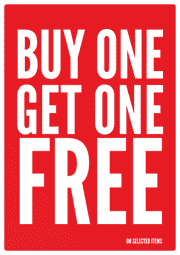 Supermarkets have got it perfected!
Supermarkets have got it perfected!How often have you been in a supermarket where they gave taster samples of a new food away? You think, “what have I got to lose, if I don’t like it I haven’t wasted any money on it.” If you like the sample, chances are the store has conveniently got a special offer on the full sized product, and you make a purchase. (If the store doesn’t have a special offer on, chances are there will be a money off coupon in the sample packet for you to use on your next visit.) So, you leave the store with a purchase you didn’t go in for, and, of all things, with a product you didn’t even know existed until ten minutes ago. If you don’t buy the product there and then, at least you know about it for next time. Whilst putting your shopping into your car you bump into your friend. “Quick,” you say to her, “go in there, they’re giving away these new chocolate bars, they’re really tasty.” That sample of food has now generated word of mouth advertising – that was a very powerful freebie! In walks your friend and the whole process starts again.
Marketing your book can work in exactly the same way.
You want to introduce potential readers to your book, but more importantly and for a longer lasting relationship, you need to introduce them to you. Most writers don’t write one book and never pick up a pen or open their laptop again. Usually, once one book is written, we are eager to get on with the next one. So, if you give part of your first book, or even the whole of the book, away to readers and they like it, you’ve developed a ready made readership that will be eager to read every successive book, and this time paying for them. But, like in the example above, it also helps to generate word of mouth advertising and stimulating conversation is most definitely the way forward in this digital social world.
Other authors have used it.
I remember some years ago I was reading the sunday newspaper and amongst all of the supplements and magazines that came with it, there was an A6 size booklet. It was a sample that contained the first 1 or 2 chapters from an authors new book. That author was James Patterson. Does James Patterson need to give away a sample of his new book? No, certainly not, but at the time, it would have gently coaxed readers that had not tried his work before, or had been unsure whether it was right for them, to read it. Guess what I did that week – I went and bought the complete book!
You are looking to build a readership for your books. Notice the plural on the word book. You want readers to read all of your books, not just one. You want to build a loyal following that get excited about new releases, or go and watch the film adaptation of your book, buy your merchandising and overall, buy into your brand – you!
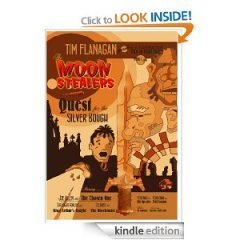 Amazon also understand the importance of letting readers try before they buy. They have the ‘Look Inside’ option for authors to opt in or out of. When a potential reader views your book, the last thing you should want is for them to turn away from your sales page just because they can’t read a few pages of your book. They need to trust you and want to see if it is right for them. If they like the small sample, they are more likely to buy, especially with the simple one click method that Amazon use.
Amazon also understand the importance of letting readers try before they buy. They have the ‘Look Inside’ option for authors to opt in or out of. When a potential reader views your book, the last thing you should want is for them to turn away from your sales page just because they can’t read a few pages of your book. They need to trust you and want to see if it is right for them. If they like the small sample, they are more likely to buy, especially with the simple one click method that Amazon use.
Once you are an established name and have people clambering to get your new book, then you will probably have second thoughts about giving some, or all of your book away for free, but for now it is an easy way of building a readership.
10 formats your freebie might take?
Activate the ‘Look Inside’ function on Amazon. If readers have taken the time to find you, they want to look at you book. Tease them with a sample. If you are also distributing your books through other sources such as Smashwords, Barnes & Noble, Sony Reader, Kobo or a via a publisher’s website, make sure you opt in to allow book samples.
Include samples of your books on your website or blog. This can simply be a page with a chapter or two on, or something a little more interactive. Have a look at http://www.flipsnack.com. Here you can download a sample of your book to their website where they will convert it into an interactive book so that your readers can turn virtual pages on the screen. If you have more than one book, flipsnack will create a bookshelf for your readers to select a book from. Once you have created it within flipsnack you can embed the code into your website. You can include up to four books on your virtual bookshelf for free, but any more than four incurs a small monthly fee. For an example of this, have a look at my Interactive Bookshelf.
Include sample chapters on different social media. Upload files to your Facebook page, then post the links and tell your followers they are there. With Twitter and Pinterest, post an image of your book cover and link the image to your virtual book on your website.
 Celebrate certain dates. Give out discount codes as gifts that coincide with certain events that might be relevant to you, your book or the characters in the book. Smashwords allow you to create Coupons that you can specify a new price, a percentage off or even give it away for free. Use your birthday as an excuse to celebrate and give people the code. Or maybe an anniversary of the day it was published, or a significant date from the book, or as part of an awareness day. Be creative but make sure it is relevant to the book. To give you some ideas, my first book, The Moon Stealers and the Quest for the Silver Bough, is partly set in Edinburgh (use celebrated dates in the Scottish calendar as an excuse: St Andrew’s Day, Burns night), and features Robert Louis Stevenson (Birthday 13 November) as well as stone circles (Winter and Summer Solstice at Stonehenge).
Celebrate certain dates. Give out discount codes as gifts that coincide with certain events that might be relevant to you, your book or the characters in the book. Smashwords allow you to create Coupons that you can specify a new price, a percentage off or even give it away for free. Use your birthday as an excuse to celebrate and give people the code. Or maybe an anniversary of the day it was published, or a significant date from the book, or as part of an awareness day. Be creative but make sure it is relevant to the book. To give you some ideas, my first book, The Moon Stealers and the Quest for the Silver Bough, is partly set in Edinburgh (use celebrated dates in the Scottish calendar as an excuse: St Andrew’s Day, Burns night), and features Robert Louis Stevenson (Birthday 13 November) as well as stone circles (Winter and Summer Solstice at Stonehenge).Use KDP Select 5 day promotion. If you are a member of Amazon’s Kindle Direct Publishing (KDP) Select scheme, you will be allowed to offer your book on a free promotion for a maximum of 5 days every 90 days. If you use this idea it will gain you loads of new followers, who, if they like your work, will then go on to purchase your other books. You will often find that when the free promotion is over, sales of the book will temporarily remain high. The promotion increases awareness and boosts your chart ranking so more people get to see it. Please be aware that Amazon will remove you from KDP Select if they know that you are selling the same book through other distributors, such as Smashwords or B&N. You will still be able to sell through Amazon, but they won’t let you use the 5 day promotions and will also remove you from their lending library.
Give the first book in a series for free. That way you are hooking potential readers with the first book, so you will gain sales on the following ones. To do this you will need to alter the price on Smashwords, which in turn changes the price on the Sony and B&N sites. However, it’s not as easy to reduce the price of your book on Amazon to zero. But, there is a way! On the Amazon page which shows your book, there is a link below the ‘Product Details’ that says “Tell us about a lower price”, click that and input the link of your book on another distributors website where it is available for free. Wait a few days and if nothing has happened, do it again. Eventually, not wishing to be left out, Amazon will price match. Regularly check your book on Amazon, it may occasionally revert back to the original price, in which case you just tell them of the lower price again.
Host a competition. If you are a member of Goodreads, why not run a competition where their readers can win a signed book as a prize. This is a great way of putting your book in front of thousands of potential readers. Some of those that enter the competition will also add your book to their “to read” list, whether they win or not. Competitions on Goodreads, as well as other peoples sites, tend to be for hard copies of books, rather than digital copies. It is your responsibility to provide the book as well as the cost of postage. With Goodreads you can specify which country you want your competition to be shown in. If you select your own country it would reduce your postage costs, but it would also limit the potential number of people that will show interest in the book.
Managed sales campaigns. Create a sales campaign that can be hosted via an external provider such as http://www.ganxy.com. On Ganxy you can create a campaign by uploading your book images and details then use it to promote your free or discounted book over all your social media outlets. You can limit the number of copies that can be redeemed and Ganxy will even analyze the performance of the campaign so that you can learn how to improve it another time. You are charged a small amount per book sold, according to the success of the campaign.
Create Mini Books. Contact a good printing firm and have a small A6 leaflet made up with the first chapter of your book printed inside. Don’t forget to have all the useful information at the end so they can buy the complete book. This option does involve a cost, but if you are taking part in any offline promotions such as visiting schools, literary festivals or book events, it’s useful to have something physical to give people. Chances are the potential reader won’t have their computer or kindle with them at that specific time, meaning they won’t be able to download your sample, so the Mini Book serves as a sample, a reminder and information provider all in one. A bookmark works well as a reminder, but they involve the reader having to make more effort to actually go to your website and find the sample of your work to download. Readers want things to be easy.
Give free copies of books to people who matter. You will always come across people who could prove useful to you, your career and your books. Don’t be afraid or embarrassed to use them and ask for their help. Make sure you give them a signed copy. You never know, they might work for a national radio station that runs a book club, or their niece may work with Peter Jackson, or they may work for a newspaper. Whatever they do or whoever they know, put a book in their hands, write down your email address and ask them to pass it on. Most of the time they will be willing to help you.
Don’t be afraid to give away part of, or all of, your book. View it as an investment for the future that will increase your readership and gain you a ready made audience for every subsequent book you write. Would you rather sell a handful of books at full price, or thousands of books at half price? If you are planning a series of books but don’t invest in the promotion of the first one, who’s going to bother with the rest of the them?
What are your views on giving away all or part of the book you have worked so hard to complete? Or, what other ways have you used your book as a promotional item?





